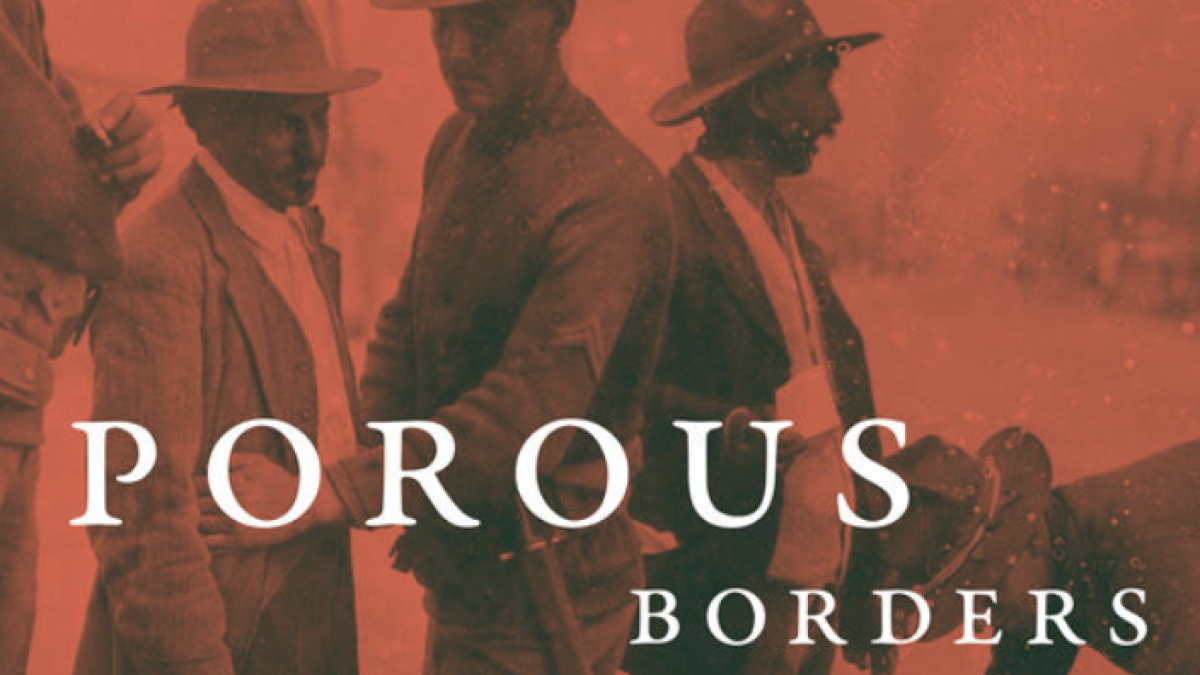ASU professor's book on U.S.-Mexico border wins humanities award

"Porous Borders: Multiracial Migrations and the Law in the U.S.-Mexico Borderlands."
Growing up in California, Julian Lim, assistant professor at the Arizona State University School of Historical, Philosophical and Religious Studies, was surrounded by a multiracial family and community.
However, she found that the reality of the “melting pot” she lived in was rarely reflected in her college history courses.
“Ethnic and race studies tended to remain compartmentalized into Asian American, African American, Latino/a and Native American studies,” Lim said.
“I wanted to dig into and describe a past that was much more diverse, where people mixed and identities seemed more fluid.”
The culturally diverse past of the U.S.-Mexico border is described in her first book, “Porous Borders: Multiracial Migrations and the Law in the U.S.-Mexico Borderlands.”
The book, which draws from her own experiences and research to paint a new multiracial picture of the region, was awarded the 2019 Institute for Humanities Research (IHR) Book Award for outstanding humanities-based scholarship.
Of her book, Lim said, “One of the main messages that I want people to understand is that there has always been mixing in the United States.
“Many Americans would assume that because I am talking about the U.S.-Mexico border, that my subjects were primarily Mexican and Anglo-American. But in fact, the border region was home to diverse indigenous peoples long before any European arrived, and became home to a much more heterogeneous population by 1900 (including many Chinese and African American migrants).
“And it could have continued to grow in diversity, were it not for the passage of increasingly restrictive federal immigration laws that were designed to exclude racially undesirable immigrants.”
In her book, Lim argues that nations and governments have long used borders to regulate race and national identity, and that racially charged immigration laws have created a monoracial identity and effectively erased the multiracial reality of the past.
Furthermore, Lim explains that political demands on immigration laws make it difficult for the U.S. to embrace a diverse future.
“Diversity by itself will not produce a ‘postracial’ society,” Lim said. “History, both distant and more recent, shows us how politicians and nativists rely on demographic ‘tipping points’ to drum up support for draconian and exclusionary immigration laws and policy.”
Lim’s new project, which she is currently researching as a fellow at the Stanford Humanities Center, dives deeper into the politics of immigration law in the U.S.
“I am currently working on my second book, which continues to explore the ways in which U.S. immigration law and policy has shaped national identity and demography in the United States," Lim said.
“In particular, it looks at how immigration officials relied on certain ideas and forms of legitimate versus illegitimate marriage to make decisions about who to admit into the country, and by extension, form families and reproduce.”
On receiving the book award, Lim said, “I am honored to be selected for the award. The IHR is a critical institution of intellectual exchange at ASU, fostering conversations about issues affecting the broader community in Arizona and beyond. I am very grateful to have its support.”
Lim will discuss her book “Porous Borders” at the IHR Book Award and Author Reception on Oct. 10. Community members are encouraged to attend to learn more about the book and the multiracial past of the U.S.-Mexico border.
More Law, journalism and politics

Exhibit uses rare memorabilia to illustrate evolution of US presidential campaigns
After one of the most contentious elections in history, a new museum exhibit offers a historical perspective on the centuries-old…

TechTainment conference explores the crossroads of law, technology, entertainment
What protections do writers, actors, producers and others have from AI? Will changing laws around name, image and likeness (…

How to watch an election
Every election night, adrenaline pumps through newsrooms across the country as journalists take the pulse of democracy. We…